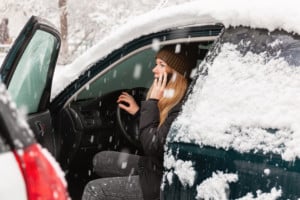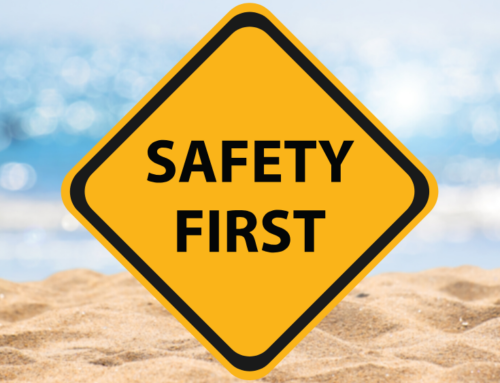When winter arrives in Atlanta, it usually brings rain, freezing wind, and the occasional bout of snow and ice.
Drivers and pedestrians alike can be seen skidding across streets or down the city’s steep slopes, causing wrecks, injuries, and delays.
As temperatures continue to drop, it’s important to learn how to prevent cold weather injuries and accidents.
Give Your Car a Check-up
Before winter arrives, prepare your car for the frigid temperatures and slick roads by making sure your tires have adequate tread and your radiator has enough antifreeze. This is a good time to stock your car with cold weather essentials like a first aid kit and blankets. You also may want to keep a bag of sand or cat litter in your car in case you get stuck on ice or snow and need to create some traction.
You also should have some flashlights, snacks, water, and a portable phone charger on hand to help prevent cold weather injuries.
But why? It’s not like you’d ever actually need those in a city tourists call “Hotlanta,” right?
You’d be surprised. In 2014, thousands of Atlanta drivers were stranded for hours on frozen roadways during a rare ice storm. Children were stranded in schools and school buses and some drivers still were stuck 24 hours later. More than 800 accidents were reported during that storm, which killed at least seven people across the South.
If you become stranded in cold weather, you may fall prey to hypothermia or frostbite, two of the most common cold weather injuries. You may also find yourself dealing with these hazards if you work in cold winter environments.
If that’s the case, contact a personal injury attorney as soon as possible to discuss your options.
Check Road Conditions Before Driving
Preparedness is key in knowing how to prevent cold weather injuries. Before hitting the road, check your local weather report to see what conditions are like.
Low Visibility
The spike in Atlanta’s inclement weather and the shrinking hours of daylight mean you’re likely going to run into periods of low visibility. If possible, try to avoid driving during such conditions, especially if you deal with light halos or similar vision issues.
Freezing Rain
Freezing rain and sleet happens when the weather is cold enough to freeze rain as soon as it hits the ground, creating a slippery surface that can cause car accidents. In addition to the slick ground, freezing rain and sleet can weigh down trees and power lines, causing them to snap or fall.
Black Ice
That freezing rain can cause black ice, a type of clear ice that forms without any bubbles, making it nearly impossible to see. It sometimes glistens in the right light, so watch out for patches of road that appear shiny during near-freezing weather.
Black ice easily forms on overpasses and highways like I-75 or I-285, a heavily used roadway that encircles Atlanta and is filled with sharp curves and periods of low lighting. I-285 has been listed as one of the top 10 deadliest highways in the country.
While everyone’s first choice would be to avoid black ice altogether, people are bound to run into it at some point. If that happens, lift your foot off the gas, do not brake, and do not do anything that would cause your car to swerve or slide, such as turn your steering wheel when your tires don’t have traction.
Do Not Use Cruise Control
Cruise control is all about convenience but there’s nothing convenient about driving during wintery weather. You must be aware of your surroundings at all times, and you need to be able to quickly maneuver around sudden dangers in order to prevent cold weather injuries.
If You Must Go Out In Cold Weather:
Dress Appropriately
Layering your clothes will create insulating pockets of warm air that will keep you warmer than if you just shucked on a simple overcoat. Additionally, your head and feet leak a large amount of body heat, so be sure to wear thick socks, closed-toe weather-proof shoes, and a quality hat.
Avoid Overexerting Yourself
Cold weather makes it easier to dangerously overexert yourself. Pace yourself more than usual during any physical activities.
Additionally, being drenched in sweat or wet clothing will cause your body temperature to drop rapidly, increasing the risk of cold weather injuries. It’s important that you get out wet clothes immediately, so keep towels or another set of clothing nearby.
Know the Signs of Common Cold Weather Injuries
There are many types of cold weather injuries, and most include symptoms such as numbness, confusion, and shivering. You must familiarize yourself with these symptoms so you can get the necessary treatment as soon as possible.
What happens if you suffer a cold weather injury on the road or at work?
Knowing how to prevent cold weather injuries is no guarantee that you won’t sustain one. You must work with an experienced personal injury lawyer who will fight for the compensation you deserve.
Contact Rafi Law Firm today for a free case evaluation. You may be entitled to compensation through workers’ compensation laws or other legal routes.





